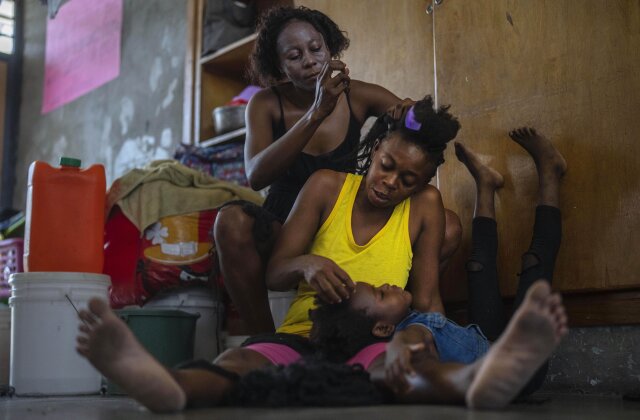ROME (Reuters) – U.N.-backed human rights experts called on Italy to combat racial profiling in law enforcement on Friday after collecting evidence of discrimination by officers.
They also expressed concern about overcrowding in Italian prisons and its impact, highlighting the disproportionate incarceration of Africans and people of African descent.
The U.N. International Independent Expert Mechanism to Advance Racial Justice and Equality in Law Enforcement was established in 2021 after the killing of George Floyd by a Minneapolis police officer.
Floyd’s death unleashed a wave of protests worldwide against police brutality and racism after the white policeman knelt on the handcuffed Black man’s neck for more than nine minutes.
With the approval of the government, the panel undertook an eight-day mission across Italy, visiting Rome, Milan, Catania and Naples to assess the intersection of race and law enforcement practices.
Talking to the foreign press in Rome, they said they had heard testimonies on racial profiling as a basis for identity checks and stop-and-search by different law enforcement agencies in Italy, under the assumption either that the person was not an Italian citizen or on the presumption of criminality.
“This racial bias, stereotypes and profiling create harmful and spurious associations of Blackness with criminality and delinquency,” said Akua Kuenyehia, chairperson of the group.
“The legitimate task to promote citizens’ safety and security should not be construed as a licence to engage in racial profiling. This practice erodes trust in law enforcement and, as a result, reduces law enforcement effectiveness,” she said.
Among the panel’s findings was a lack of comprehensive race-based data hampering Italy’s efforts to address racial disparities.
It also noted instances of torture and ill-treatment, including at a Milan juvenile prison where 13 guards were arrested last month on charges of serious ill-treatment of inmates.
The panel will draft a full report to be presented to the UN Human Rights Council in September.
(Reporting by Giselda Vagnoni, editing by Nick Macfie)
Copyright 2024 Thomson Reuters.
